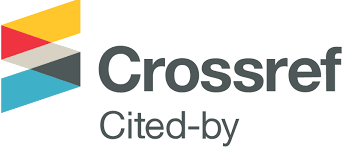Extended Abstract: A ``Pueblos Mágicos'' is a locality in Mexico that possesses symbolic attributes and represents national identity. These places are recognized as tourist destinations and form an integral part of a local tourism development program that began in 2001 with three localities: Huasca de Ocampo in Hidalgo, Mexcaltitán in Nayarit, and Real de Catorce in San Luis Potosí. Currently, there are 132 ``Pueblos Mágicos'' across Mexico, representing socioeconomic opportunities for the regions, cultural preservation, and sustainable development.
In recent times, academics and marketing experts have been focusing on sustainability through theories and approaches such as Service-Dominant Logic (SDL), value co-creation, and the service ecosystem. These emerging marketing theories and approaches aim to build and develop sustainable relationships with the environment, integrate environmentally friendly technologies, promote responsible consumption, ethical customer-company interaction, and encourage human value co-creation behavior in tourism.
This research aims to explore the behavior of value co-creation as a tool for sustainable behavior perceived by tourists in the ``Pueblos Mágicos''. The study involves 347 online surveys conducted with tourists in the seven "Magic Towns" of Hidalgo. The Customer Co-creation Behavior scale of (Yi & Gong, 2013) and (Choi & Sirakaya, 2005) is used as a statistical instrument, and a hierarchical component modeling approach is employed. This methodology helps identify value co-creation behavior and sustainable behavior perceived in this context.
Structural equation modeling, specifically partial least squares (PLS), is used to validate the model. Composite reliability (CR) statistical significance at the P<0.001 level is evaluated to assess the internal consistency of the constructs. The indicators obtained demonstrate values higher than 0.7, meeting the reliability requirement and exhibiting convergent validity characteristics with constructs surpassing a level greater than 0.5 in relation to the average variance extracted (AVE).
The results indicate that value co-creation behavior is observed in Customer Participation Behavior (CPB) and Customer Citizenship Behavior (CCB). The four dimensions explaining CPB (information seeking, information sharing, responsible behavior, and personal interaction) exhibit factor loadings greater than 0.8, except for information sharing (β=0.67). All dimensions are statistically significant (P<0.001). Similarly, the four dimensions determining CCB (feedback, recommendation, help, and tolerance) have loadings greater than 0.5 and statistical significance. The three dimensions explaining Perceived Sustainable Value also display factor loadings: Environmental sustainability (β=0.78), Social costs (β=0.65), and Economic benefits (β=0.90). All dimensions are statistically significant (P<0.001).
The main findings indicate the existence of value co-creation behavior among tourists in the ``Pueblos Mágicos'' in Mexico. There is high Customer Participation Behavior (.91) and Customer Citizenship Behavior (.89), demonstrating that tourists actively contribute to improving their experience and perceived value. In terms of perceived sustainable value, tourists have a positive perception of environmental sustainability and recognize economic benefits for the local people and businesses. However, social costs are not as relevant, suggesting that tourism in the ``Pueblos Mágicos'' does not significantly improve the quality of life for the residents. Additionally, rapid tourism growth has led to commercialization, neglecting certain social aspects such as native culture.
The findings of this research provide valuable insights for the Mexican government and stakeholders involved in Mexican local tourism. It helps them develop marketing strategies that involve tourists as co-producers in sustainable development during their travels. It is important to note that this research has limitations and should be considered in the context of other regions of Mexico.
Funding statement
The author(s) received no financial support for the research, authorship, and/or publication of this article.
Conflict of interest
The author(s) declared no potential conflicts of interest with respect to the research, authorship, and/or publication of this article.





